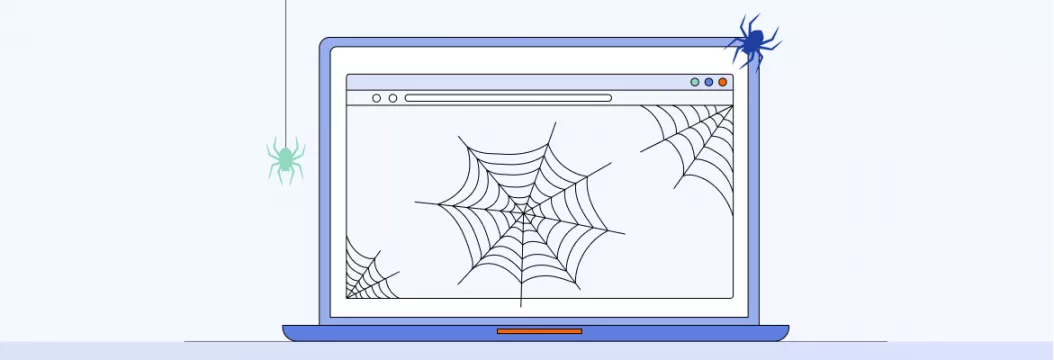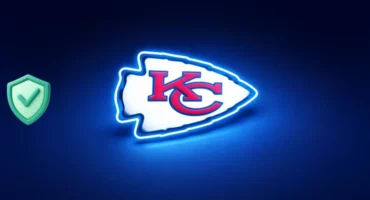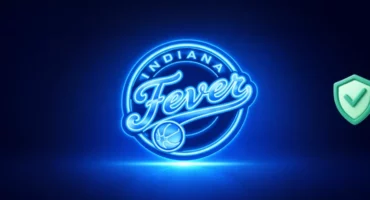Deep Web vs Dark Web: Clearing the Confusion

Bring in your flashlights, because we are going into the deep, deep web.
Many people use the terms “deep web” and “dark web” interchangeably, and they are wrong. In fact, the dark web is just a small fraction of the vast deep web. Another popular misconception ties both deep and dark web to everything illegal and dangerous.
While this is, unfortunately, may be right, still, the bigger portion of the deep web doesn’t have to do anything with criminal activities.
What does the dark web consist of?
To make the understanding easier, let’s use a comparison. Much like an ocean, the web is comprised of several layers.
- Shallow waters. It is the Clear web, which everyone knows and loves. All of the websites indexed by search engines are here. To find any piece of information, you go to Google or another search service of your choice and type in your query.
- Deep waters. The deep web is “beneath” the normal one in the sense that you can’t really use a search engine such as Google here. This section of the Internet contains pages that are not indexed by search engines – from real websites with news leaks and such kind of information to thousands junk 404 pages.
- Dark waters. This is the scariest part of the web and the one that is usually, and not without a good reason, associated with the misdeeds and dangerous people. However, Dark Web doesn’t automatically equal drug dealing and counterfeit money. Its main difference from the deep web is that you need a specific software to access it. The most well known is the TOR, or The Onion Router, browser.
Awesome dark web websites
We don’t want to portray dark web as either black or white, because it’s neither of those two things. However, before entering the dark waters, you should fully understand that this section of the Internet does contain some dangerous and illegal information.
This doesn’t mean that everything on the dark web is bad – it simply lies beyond the usual web censorship for better or worse. You will notice that most of the websites have gibberish names and operate under a strange .onion domain. Well, welcome to the deep dark web!
Here is the list of interesting dark web pages to have a look at. And don’t worry, there’s nothing scary there – we’ve checked:
- The Intercept. If you haven’t heard of The Intercept, you definitely should go check it now. It’s a bold, uncensored online journal which main mission is to “hold the powerful accountable.” Many materials published there are based on leaked information or evidence by the witnesses, which may be censored or cut out later.
To protect the lives of those submitting stories, The Intercept launched a .onion website to collect stories from any place in the world.
- Sci-Hub. This website has caused such a huge controversy and inspired a heated public discussion on the scientific research accessibility. The website was created by Alexandra Elbakyan in 2011 and caused a boom in the online realm. Sci-Hub offers users around 50 million of research papers completely for free, while as purchasing one paper can cost you from $30 to $3000.
Alexandra was hailed a pirate, and now is hiding. The website is still operating on a .onion domain, though.
- Here we have another independent news source, which believes that everyone in the world deserves to know the unbiased state of events. The ProPublica was the first Internet-based publication to receive the Pulitzer Prize, and one of the first news journals who created a .onion website. It works fantastically and is well maintained, which proves that the ProPublica team supports their claims in favor of free speech with real actions.
- Well, yep, the website that spies on everyone doesn’t want to be spied upon and has a .onion version of their service. The main reason behind this is not privacy (with Facebook? Really?), but rather accessibility. Using TOR and Facebook on a .onion domain, all those people can get access to this social media and still be safe.
- This search engine with a funny name is a great alternative for Google, and it actually helps you protect your privacy. By design of this search engine, it doesn’t log your online activity. While Google can be used in the dark web, over some time it gets unbearable due to constant Captcha requests. Most times DuckDuckGo operates as fast as Google while offering privacy and security as a cherry on top.
- Blockchain on .onion. Blockchain was created to conduct anonymous payments that can’t be tracked to an individual user. However, with the popularization of the currency, it was stripped down of that protection and anonymity. This onion-based Bitcoin wallet is here to restore that characteristic from the good old times. This website is also among the few ones, together with Facebook and The Intercept, and ProPublica, which use the HTTPS encryption.
- The Hidden Wiki. This one is actually less cool than it sounds. However, it’s a vital service that allows users to navigate the dark web with more or less precision. Unlike clearweb Wiki, which is a collection of publicly created and edited articles, the Hidden Wiki is a huge catalog of darkweb websites with a short description for each of them. As the anonymous network is frantic and highly chaotic, the catalog has to be constantly monitored and cleared off dead and malicious web pages.
This list is just the small fraction of the cool and weird stuff you can encounter in the dark web. Be careful, though, not everything is harmless there.
Make sure to use VeePN every time you surf the web – both the regular and the dark one – to be sure that all your personal information is safe.
VeePN is freedom
Download VeePN Client for All Platforms
Enjoy a smooth VPN experience anywhere, anytime. No matter the device you have — phone or laptop, tablet or router — VeePN’s next-gen data protection and ultra-fast speeds will cover all of them.
Download for PC Download for Mac IOS and Android App
IOS and Android App
Want secure browsing while reading this?
See the difference for yourself - Try VeePN PRO for 3-days for $1, no risk, no pressure.
Start My $1 TrialThen VeePN PRO 1-year plan







